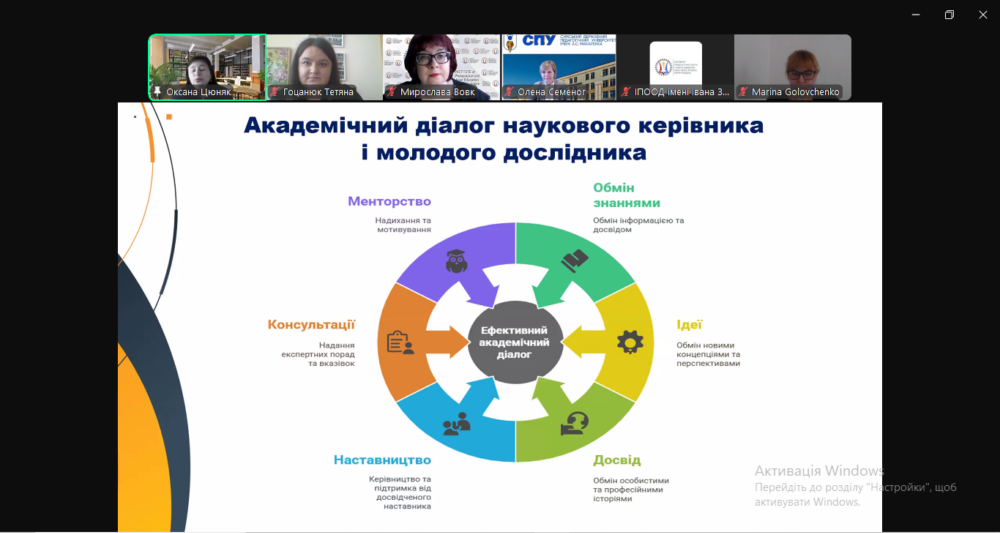As part of the implementation of the content of educational and scientific programs, an interregional lecture-polylogue on the topic “Academic integrity of a modern researcher in the conditions of a modern information society: theoretical and practical context” was held for future doctors of philosophy.
The lecture-polylogue became a platform for discussing important issues of academic integrity, especially relevant in the context of the challenges of the information age. Professors Olena Semenog and Myroslava Vovk analyzed in detail the essence of the concepts of “academic integrity”, “scholar”, “scientist”, outlined modern challenges for a researcher in the era of digitalization. Special attention was paid to the issues of preventing academic plagiarism, developing critical thinking skills, an ethical attitude to authorship and the use of modern digital tools to ensure the transparency of scientific activity. Practical aspects of observing the norms of integrity in scientific research were proposed, and ways of forming an academic culture among young scientists were outlined.
Oksana Tsiunyak highlighted the issue of academic integrity in scientific research as a set of ethical norms and practices that guarantee reliability, transparency and respect for intellectual property. The professor noted that an important role in adhering to the principles of academic integrity is played by the academic dialogue between the scientific supervisor and the young scientist, which should be built on the principles of mutual respect, openness, trust and constructive cooperation.
Oksana Petrivna also presented the experience of implementing the principles of academic integrity at the Vasyl Stefanyk Precarpathian National University. The “Guide for Postgraduate Students” (posted on the university website) is useful for young researchers, which not only helps to navigate the requirements and stages of obtaining a scientific degree, but also forms an idea of the academic culture, ethical standards and principles of responsible scientific activity.
Kyryl Kotun introduced the audience to the policy of using artificial intelligence in education and teaching, presented international experience and recommendations. In his speech, he outlined the main international approaches to integrating AI into the educational process, identified key trends, challenges and opportunities that are opening up for higher education institutions. Particular attention was paid to the analysis of international experience in using AI in education, in particular the principles of ethical use of technologies, the need to develop digital literacy among participants in the educational process and the importance of forming a responsible policy for the implementation of innovations. Jan Kapranov presented the experience of Poland and Finland in implementing the principles of academic integrity. The presented international experience became an important guideline for further steps in the development of academic integrity in Ukraine.

